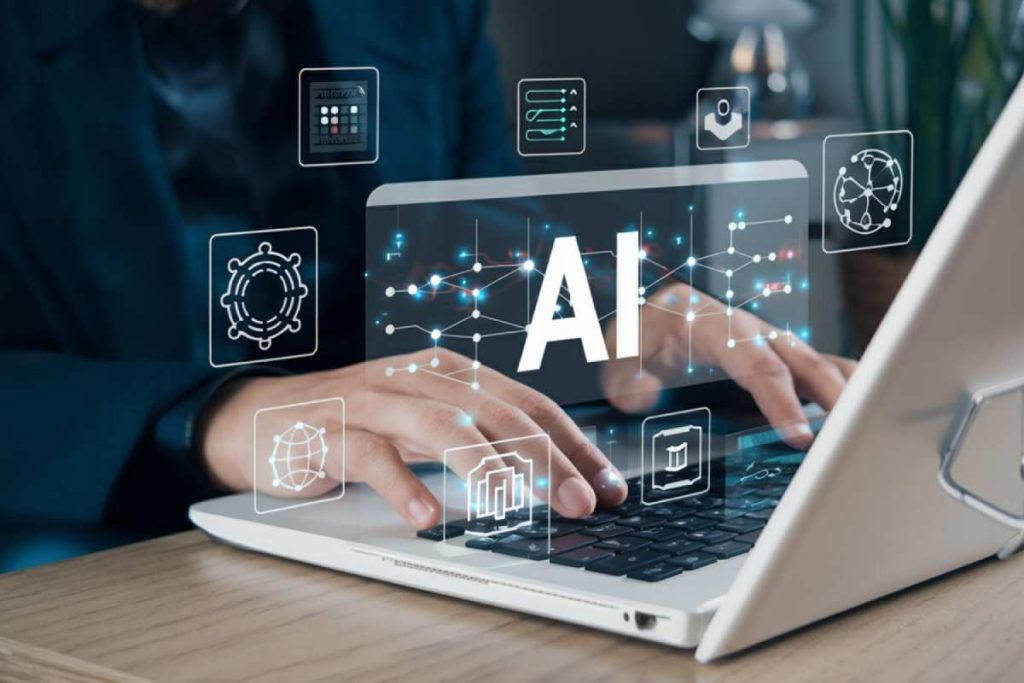In this article, we will delve into the various ways AI driven software is enhancing business operations. You will learn about the key features that make these tools indispensable, such as automation, predictive analytics, and personalized customer experiences. We will also explore real-world case studies that highlight successful implementations of AI technologies, demonstrating their impact on productivity and growth.
Furthermore, we will discuss the challenges businesses face when integrating AI solutions and how to overcome them. By understanding the potential pitfalls and best practices, you can better prepare your organization for a seamless transition into the AI-driven future. Stay with us as we uncover the transformative power of AI in driving business efficiency and innovation, and discover how your organization can leverage these advancements to stay ahead in a competitive market.
Enhancing Decision-Making with AI Analytics
AI-driven software is revolutionizing the way businesses make decisions by providing advanced analytics capabilities. By leveraging machine learning algorithms, organizations can analyze vast amounts of data in real-time, uncovering insights that were previously hidden. This data-driven approach allows companies to make informed decisions quickly, reducing the time spent on analysis and increasing overall efficiency.
Moreover, AI analytics tools can identify trends and patterns that human analysts might overlook. For instance, predictive analytics can forecast market changes, enabling businesses to adapt their strategies proactively. As a result, companies that utilize AI for decision-making not only enhance their operational efficiency but also gain a competitive edge in their respective industries.
Automating Routine Tasks to Boost Productivity
One of the most significant advantages of AI-driven software is its ability to automate repetitive tasks. By implementing robotic process automation (RPA), businesses can streamline workflows and free up employees to focus on more strategic initiatives. This shift not only increases productivity but also enhances job satisfaction, as employees can engage in more meaningful work.
Automation can be applied across various functions, from customer service chatbots handling inquiries to AI systems managing inventory levels. By reducing the burden of mundane tasks, organizations can optimize their resources and improve overall efficiency. As a result, businesses can achieve higher output with the same workforce, ultimately driving innovation and growth.
Personalizing Customer Experiences with AI
AI-driven software is transforming customer relationship management by enabling businesses to deliver personalized experiences. Through data analysis, AI can segment customers based on their preferences and behaviors, allowing companies to tailor their marketing strategies accordingly. This level of personalization not only enhances customer satisfaction but also fosters loyalty and repeat business.
Furthermore, AI can predict customer needs and recommend products or services that align with their interests. For example, e-commerce platforms utilize AI algorithms to suggest items based on previous purchases, significantly improving the shopping experience. By leveraging AI for personalization, businesses can create deeper connections with their customers, ultimately driving sales and enhancing brand reputation.
Improving Supply Chain Management with AI
AI-driven software is playing a crucial role in optimizing supply chain management. By analyzing data from various sources, AI can forecast demand, manage inventory levels, and streamline logistics. This predictive capability allows businesses to minimize waste and reduce costs, leading to a more efficient supply chain.
Additionally, AI can enhance supplier relationship management by evaluating supplier performance and identifying potential risks. By leveraging AI insights, organizations can make informed decisions about sourcing and procurement, ensuring a resilient supply chain. As a result, businesses can respond more effectively to market fluctuations and maintain a competitive advantage.
Enhancing Cybersecurity with AI Solutions
As businesses increasingly rely on digital platforms, cybersecurity has become a top priority. AI-driven software is transforming cybersecurity by providing advanced threat detection and response capabilities. Machine learning algorithms can analyze network traffic and identify anomalies that may indicate a security breach, allowing organizations to respond swiftly to potential threats.
Moreover, AI can automate incident response processes, reducing the time it takes to mitigate risks. By continuously learning from new threats, AI systems can adapt and improve their defenses over time. This proactive approach to cybersecurity not only protects sensitive data but also enhances overall business efficiency by minimizing downtime and disruptions.
Driving Innovation through AI-Enabled Research and Development
AI-driven software is accelerating innovation in research and development (R&D) across various industries. By analyzing vast datasets, AI can identify new opportunities for product development and streamline the R&D process. This capability allows businesses to bring new products to market faster, enhancing their competitive position.
Furthermore, AI can facilitate collaboration among R&D teams by providing insights and recommendations based on previous projects. By leveraging AI in R&D, organizations can foster a culture of innovation, encouraging teams to explore new ideas and solutions. Ultimately, this leads to the development of cutting-edge products and services that meet evolving customer needs.
Artificial Intelligence (AI) is revolutionizing the way businesses operate by enhancing efficiency and fostering innovation. Below is a summary of how AI-driven software is transforming business processes.
| Aspect | Description |
|---|---|
| Automation | AI software automates repetitive tasks, reducing human error and freeing up employees to focus on more strategic activities. |
| Data Analysis | AI tools analyze vast amounts of data quickly, providing insights that help businesses make informed decisions and identify trends. |
| Customer Experience | AI enhances customer interactions through chatbots and personalized recommendations, improving satisfaction and loyalty. |
| Predictive Analytics | AI algorithms predict future trends and behaviors, allowing businesses to proactively address challenges and seize opportunities. |
| Cost Reduction | By streamlining operations and improving efficiency, AI-driven software helps reduce operational costs significantly. |
| Innovation | AI fosters innovation by enabling new business models and services, driving competitive advantage in the market. |
| Scalability | AI solutions can easily scale with business growth, adapting to increased demands without a proportional increase in costs. |
This HTML document provides a structured overview of how AI-driven software is transforming business efficiency and innovation, presented in a clear and informative table format.

